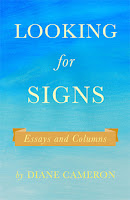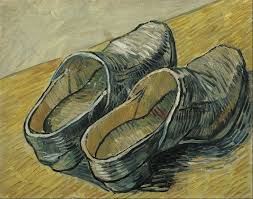Off we go trailing shopping lists and credit card receipts. Hanukah is done but Christmas is this week. We may complain about our errands and even about some of the folks on our shopping list, but we do enjoy the festivity the holidays bring to our gray December days.
It’s no coincidence. The holidays that celebrate light, Hanukah and Christmas, are aligned
with the seasonal transit of the sun. It’s a leftover from earlier times when the religions of nature led all of the others. There was good reason, then as now, to run from the darkness.
We know that ancient man feared that the sun had died. It was his terror that the heat and light were gone. To coax the sun god back our ancient relatives created rituals. The Druids lit bonfires. Now we celebrate with candles and lights in our windows.
Spirituality is a way out of darkness and into hope and joy. The vehicle is mystery and a miracle, whether it’s oil that lasts eight days or the birth of a baby in a barn.
In the Northern Hemisphere this is a time when we face our vulnerability. Weather is the least of it. We all have moments of darkness: our grief, fears and regrets. The darkness we fear most, of course, is the grave. We still think we can outrun it. So, some of us go to the Caribbean and some to sunlamps or light boxes; many pursue spirits, religious or distilled. Like our ancestors we too want the sun to come back and give us life again. So we go to the stores and burn up our credit cards; we sacrifice our savings as we gather at the mall where we may find what passes for community.
But we still fear the dark. Much of what we do this time of year is about distraction. Not unlike whistling when we pass a graveyard, now we sing and shop and light candles and eat too much. And we complain. A lot. But maybe our railing against our holiday chores is itself a part of the solstice. Now when we are oppressed by darkness –when our primitive fears can be felt even through layers of advertising and anti-depressants-- we are drawn to the lights and to other people as our defense against the dark, just as our ancient relatives were drawn to stars and fires.
We talk of holiday depression as if it’s somehow wrong or an aberration. But these holidays we’re celebrating, Hanukah and Christmas, are also about darkness. Sometimes we forget that. But it’s true: the flip side of each story is about the darkness at the edge of the light.
The words of this Christmas carol could just as well be a Solstice song: Yet in the dark street shineth, the everlasting light; the hopes and fears of all the years are met in thee tonight.
We’re fighting something ancient, natural and necessary. Occasionally we need to feel the darkness—even symbolically--like we sometimes need a dark night or a wild storm.
So maybe there is another way to experience this day. On this, the darkest night, what if we allowed the darkness and went toward it, daring ourselves to sit still before we light the candles or the tree. What if we sat a moment seeing the tree in darkness--and breathed. That’s what solstice is about. We can enter the darkness and emerge transformed. We can stand it.
On this day the sun is at the most southern point of its transit. Tomorrow is the longest night of the year. Then, soon the days will grow longer again. The cycle is astronomical and holy.
On this night we are as ancient as ever.

























